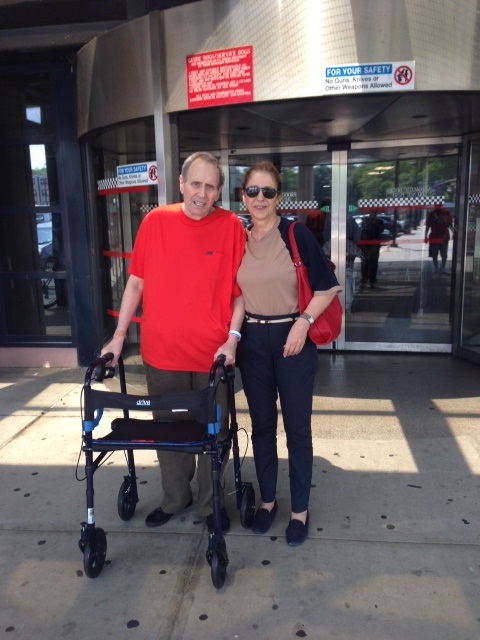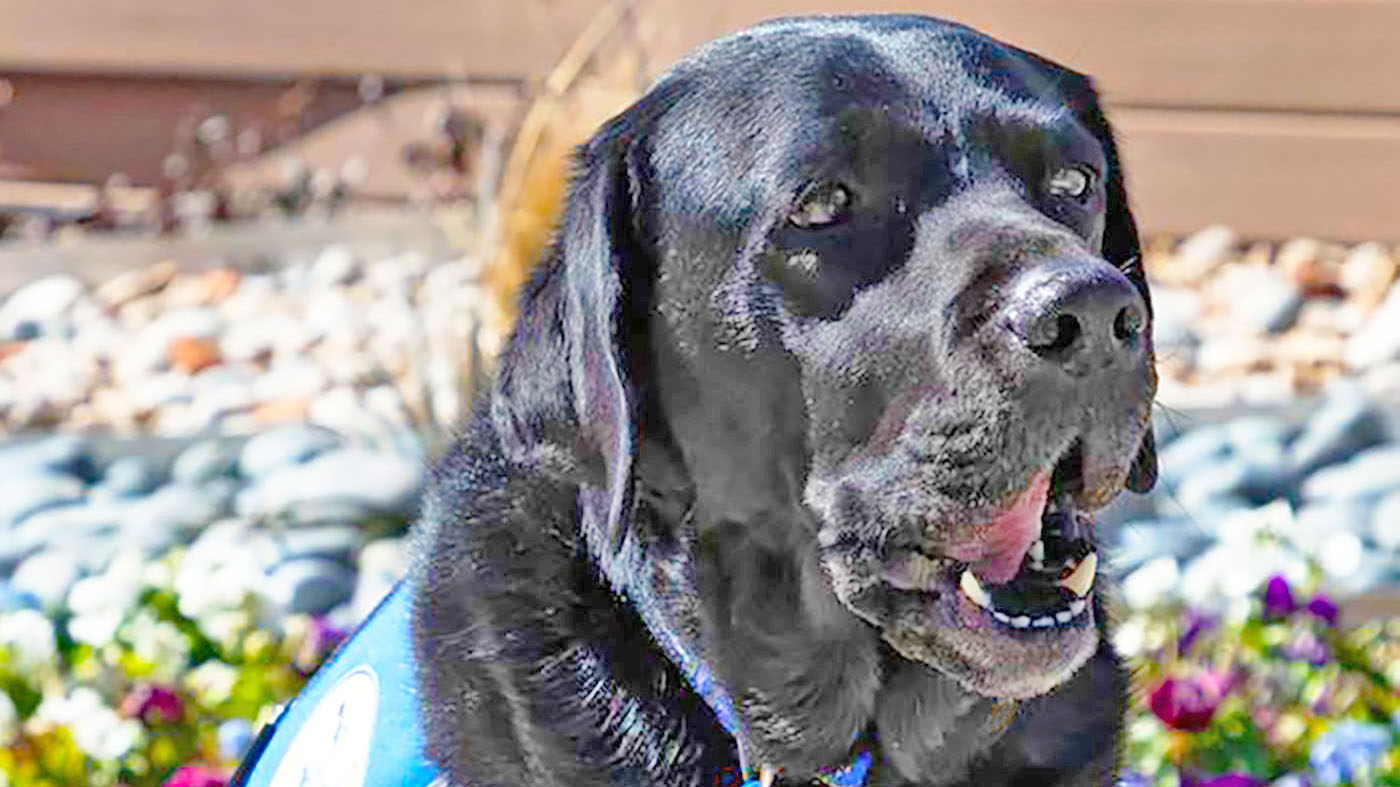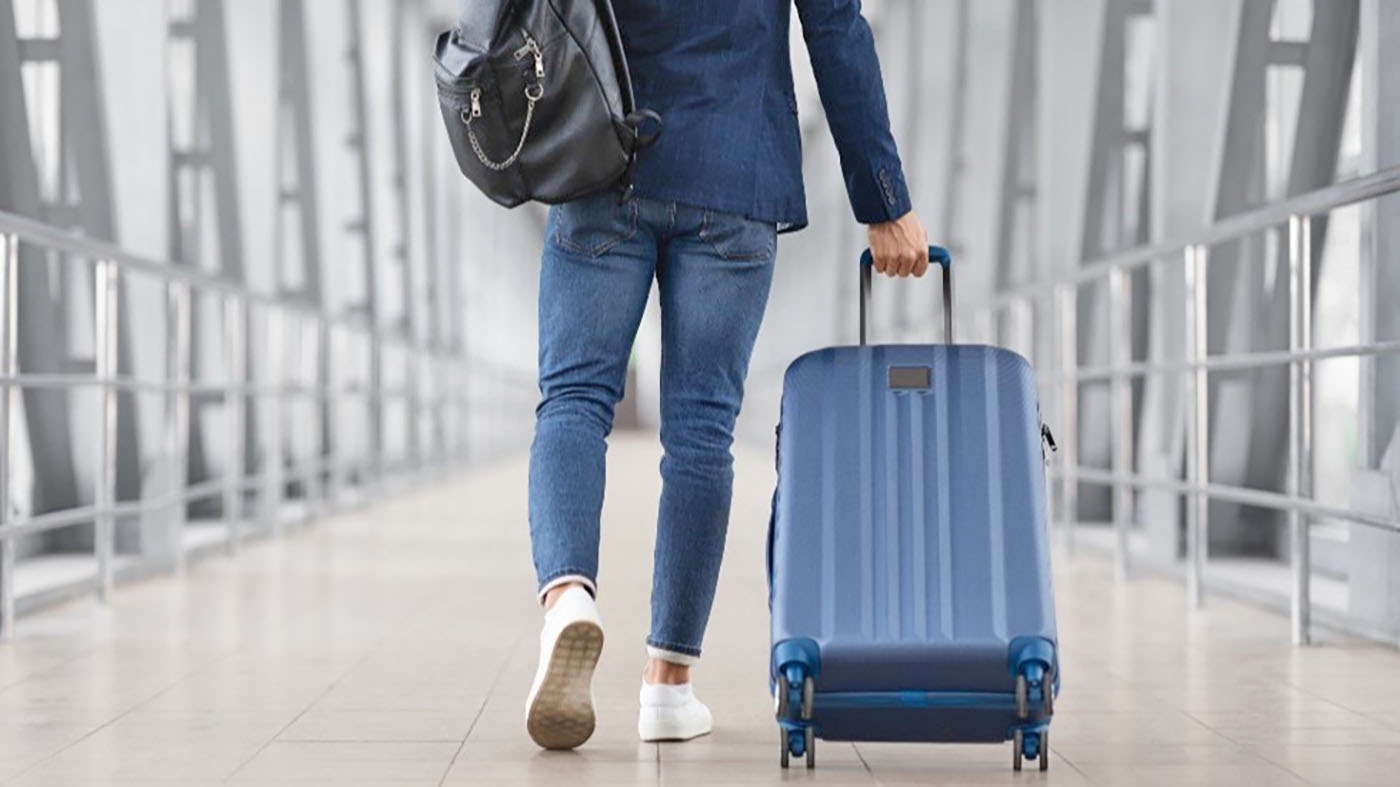Twenty-four years ago, when Gracie Srour met Charles Frank Heller, Mr. Heller was full of life. Although the Vietnam-era Army Veteran had a diagnosis of multiple sclerosis (MS), he did not let the illness stop him from fully enjoying life. The future Mrs. Heller arrived in New York as a tourist from her native Lebanon. The pair met through a mutual friend and soon married in a civil ceremony in Cyprus. They had another wedding in New York, where, although he was Jewish, Mr. Heller agreed to be married in a church to please his bride.
”I love him. He’s a good man,” says Mrs. Heller, whose devotion to her husband is complete and unwavering. Her commitment has faced many challenges. After five years of marriage, her husband, an investment banker, was no longer able to work because of the complications of MS.
Seventeen years later, Mr. Heller’s health quickly began to deteriorate. Two years ago, after being diagnosed with colon cancer, the disease metastasized to the liver. Mr. Heller then survived two heart attacks. More recently, a severe stroke left him unable to speak or even write. Those close to him and VA staff remember that several weeks earlier, he was chatting and laughing despite his illness.
At VA’s Brooklyn Campus, with her husband virtually helpless in bed, Mrs. Heller was reluctant to leave his side even for a moment. Knowing her husband was being discharged home, she needed to go to their apartment to set up a hospital bed, feed her cats and take a shower. Now that he is home, a huge underlying stress is that Mrs. Heller is determined not to have her husband cared for in a hospice or care facility outside their home.
“He would never accept that,” she says. She admits however, “I think I am breaking down. I can’t do the night. I am very anxious.”
VA Staff from Different Departments Volunteered
While Mr. Heller was a patient at the hospital, a very positive side of this extremely difficult situation was the availability of a program called No Veteran Alone. This service offers family members, friends or the caretaker of a gravely ill person an hour or two every few days to “go home to take care of things,” as explained by Dr. Carol Luhrs, Chief of Hematology/Oncology at New York Harbor HCS Brooklyn Campus.
Dr. Luhrs says the program, that involves scheduling hours of relief for caregivers, is in place largely through the efforts of Nicole Lasasso, a program assistant who was determined to create the program and keep it going.
For Mr. Heller, the program brought staff from different departments, who, for several weeks, volunteered an hour of their time. In addition to Lasasso, those most closely involved in volunteering through No Veteran Alone were VA Police Officer and Navy Veteran Matthew Spano and Social Workers Jennifer Di Biase and Vanessa Barrow.
Each shed some light on the compassionate program. Di Biase emphasized the gratitude family caregivers feel for even a little relief. Barrow explained that the volunteers were available to offer extra support when nurses were occupied with other tasks. And Officer Spano, whose own father, a WW II Veteran, died at VA’s Brooklyn hospital, acknowledged the extra comfort he is able to offer fellow Veterans.
The staff who have volunteered to participate clearly feel personally rewarded. “Sometimes, it’s just being a presence, to hold a hand, listen to music. It’s all up to the patient.” says LaSasso.
Commenting on her experience with No Veteran Alone, Mrs. Heller says, “It’s a wonderful program. I love this program. I wish more people knew about it.”
Mrs. Heller is enormously grateful to Dr. Andrea Leaf and other physicians who treated her husband. “I am so grateful for all the doctors and nurses who were involved with us and I cannot imagine anyone having any complaint about VA. His doctors for medical support or on the human side all gave more than they could.”
By Claudie Benjamin, Public Affairs Specialist, VA NY Harbor Healthcare System
Topics in this story
More Stories
Black Lab Raisin reminds Veterans of life outside the hospital, brightens their lives with her endless capacity for joy.
VA remains open for business and is closely monitoring the Change Healthcare (CHC) cybersecurity incident.
Take the stress out of travel. My HealtheVet makes preparing for your time away easy with these five quick tips.









helping one like I did yesterday is what I could do, a vet was talking to another on a crutch, I had to pull in, turn around and offer a cane, he gruffly said “naw”, then I asked if the other needed one, NO again was his reply, then “What kind of cane do you have…??…I pointed in my rear view window, holding up a new Wounded Warrior sticker I just purchased in Fairbanks @ farthest north outpost Harley-Davidson, “I’LL TAKE THAT”, I held up traffic, but glanced back @ him adjusting his new VA cane…Guess I’m in trouble now with the Veterans Administration, but my ongoing red rooster comb injections have left me cane free for 3 years now, A blessing I appreciate everyday
Your article regarding veterans not alone is very interesting. I have often wondered about all the veterans that live alone, seniors, VA care recipients whom are never seen by a Social Worker or Dietician or even someone to pay them a visit to see their living arrangements. The VA cares about positive publicity. Here is something to work on!!!!